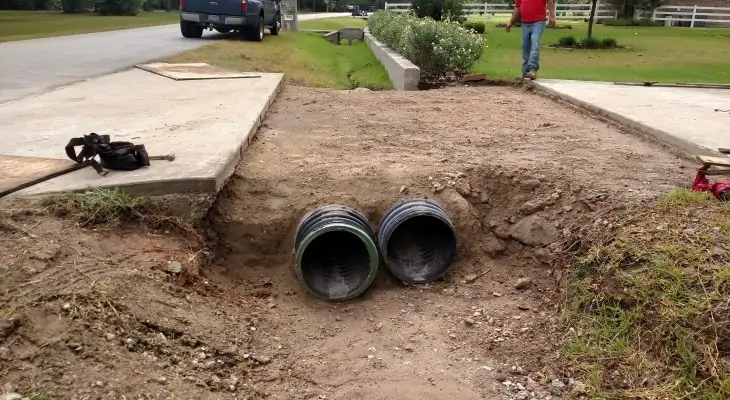So, you need to run a drainage pipe under your driveway! You may find yourself in the plumbing department of your local hardware store, staring down all the options. Don’t feel overwhelmed! Here is a guide to all the drainage pipe options available!
Of all the drainage pipe options available, the best option to place under a driveway is Polyvinyl Chloride (PVC) pipe. PVC pipe is lightweight, durable, readily available, and easy to work with. It’s smooth walls allow for easy water flow. The durable nature of PVC pipe will withstand the weight of vehicles on the driveway and reduce the potential for leaks.
Table of Contents
What Factors Affect Pipes Under a Driveway?
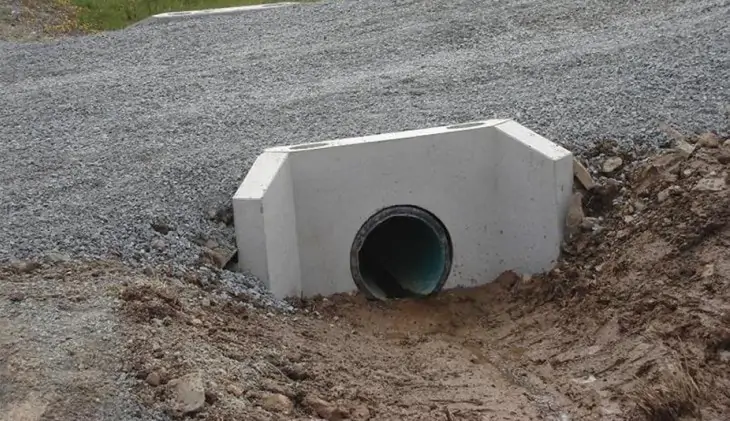
Just because you can’t see the pipes under the driveway, doesn’t mean they are not working hard!
Weight of Vehicles
Any pipe under a driveway will need to withstand a lot of weight! Most of us use driveways for vehicles. It is important that you choose a material that will be able to withstand the weight of multiple vehicles on the driveway.
Burying drainage pipes at least 12 inches below the concrete will help the pipes withstand heavy weight on the driveway.
Temperatures Changes
Some materials may expand and contract with changes. Over time, these changes can wear the pipes and lead to leaks.
What Types of Drainage Pipes are Available?
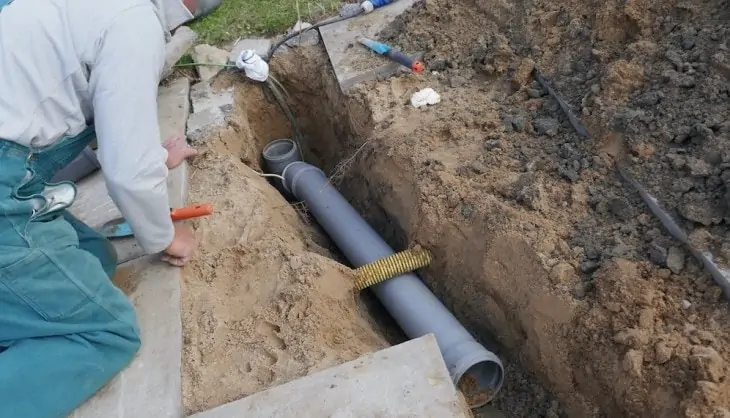
Metal
Drainage pipes are available in a variety of metals. There are pros and cons to a metal pipe. On the plus side, they are very durable! However, many homeowners find that metal drainage pipes come with an expiration date. No matter the metal, metal pipes are vulnerable to corrosion.
Copper
Copper pipes are commonly used in homes. However, copper can also be used in underground drainages, like under your driveway!
Copper is less corrosive than most metals. If you are set on a metal pipe for drainage, copper is the answer! The copper doesn’t need to be wrapped and will do well in direct contact with rocks and soil.
Cast Iron
Cast iron is often a preferred material for drainage pipes due to its strength and durability. It used to be the material of choice for outdoor drainage. It has recently been replaced by plastic pipes, but many new homeowners are returning to cast iron.
DIY-ers beware! Cast iron can be difficult to work with and requires specialized tools. It will also rust over time.
Plastic
Plastic is the ideal material for drainage pipes! It is lightweight, durable, easy to install, and inexpensive. There are several types of plastic pipes available. The two most common are PVC and Polyethylene.
PVC
PVC is the abbreviation for Polyvinyl Chloride. PVC is readily available at most home improvement stores. It is lightweight, inexpensive, and easy to work with. Most DIY-ers prefer PVC for drainage projects.
PVC pipe is rigid with smooth walls. Couplings and joints are used for bends and connectors.
Polyethylene
Polyethylene is another type of plastic that is flexible, unlike rigid PVC. If you have a lot of twists and turns in your project, polyethylene may be the material for you!
Concrete
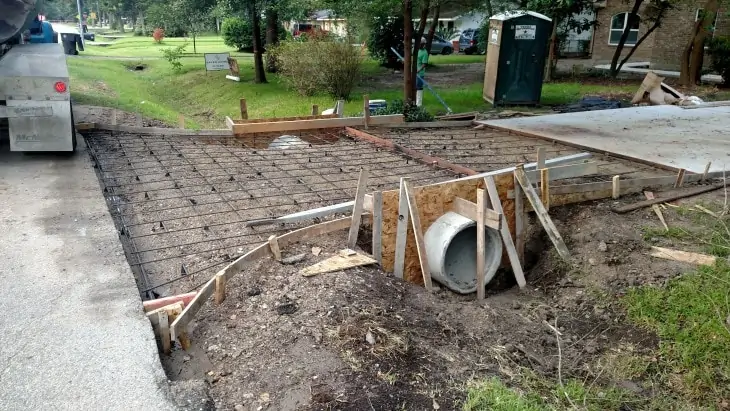
Concrete pipes are tough, sturdy, and leak-proof! These heavy-duty pipes are usually used for industrial drainage or heavy-duty plumbing jobs. Sometimes, concrete pipes may be used to encase more fragile pipes.
Clay
Clay is used to make more than just clay pots. Though clay pipes are not commonly used anymore. Clay used to be used frequently for sewage due to its resistance to chemical reactions. However, clay can become brittle and break easily.
Which Type of Drainage Pipe is Best Under a Driveway?
Of all these options, I would recommend Schedule 40 PVC pipe for your drainage project! Look for a PVC pipe that is labeled DWV for drain, waste, and vent. Use couplings and fittings for connections and turns with your PVC pipe.
What Styles are Best to Use Under Driveway?
Corrugated
Polyethylene pipes usually come with ridges, or corrugations to allow for flexibility. These are great for tight spaces, but watch out! All those little ridges increase the risk of clogs. It is important to make sure there is enough of a downward slope for proper drainage.
Smooth Wall
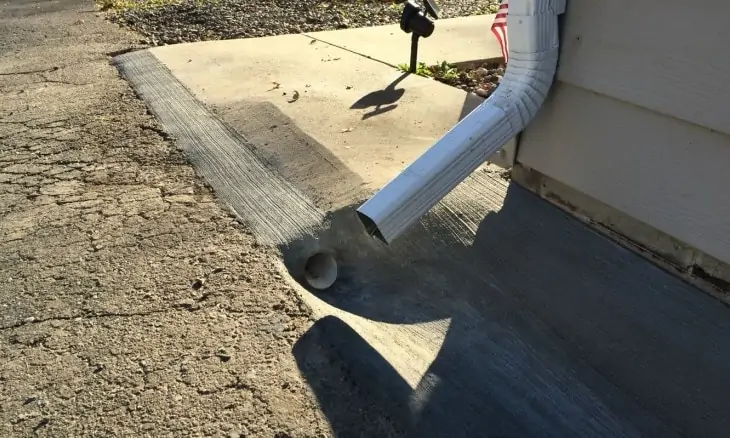
A smooth wall will probably be the best solution for your driveway drainage project! A smooth wall, like the insides of a PVC pipe, allows for efficient water flow in a straight path without the risk of clogs.
Smooth wall PVC drainage pipes are one of the best options for driveway culverts.
What Size Drainage Pipe Do I Need Underneath a Driveway?
Drainage Pipes come in all shapes and sizes! 1.5-2 inches is usually the preferred size for a drainage pipe underneath a driveway.
Check with City Officials
Before you begin any major project, like tearing up a driveway, check the regulations in your area! There may be rules or recommendations for materials. You will also need to acquire the necessary permits for your project.
Don’t forget about underground utilities! Most utility companies will mark the areas with underground lines for you. Always check before you dig!
Final Thoughts
Move ahead on your driveway drainage project with confidence! Evaluate the available materials and decide which one will work best for your project. Choose a material that will be durable and easy to work with, if you are handling the project yourself.

